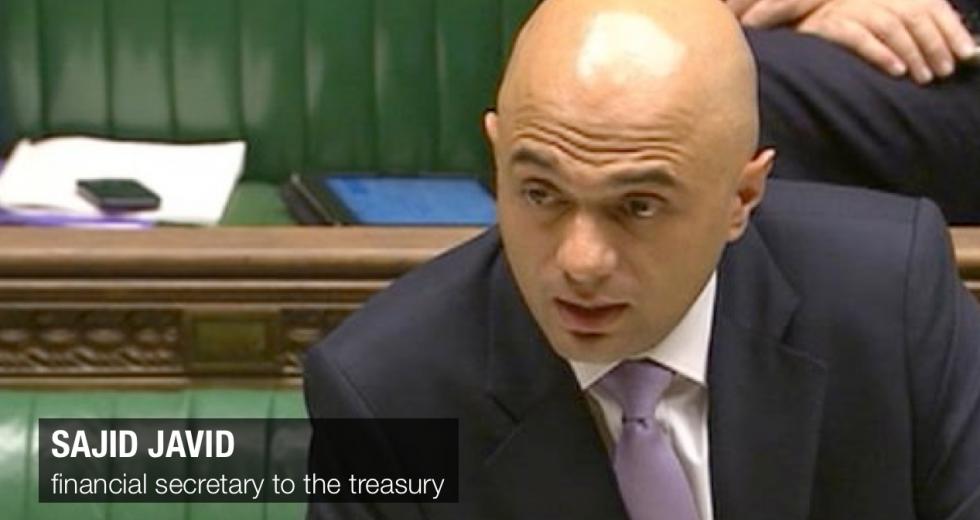
Sajid Javid, Financial Secretary to the Treasury, is "delighted that the Banking Reform Bill has received Royal Assent. This is a major milestone and marks the end of a three year process, led by the government, to make the UK banking system stronger and safer so that it can support the economy, help businesses and serve consumers."
The Act puts in place the so-called and much lauded "ring-fence" which is being presented as "bank separation".
Which it isn't.
Under true bank separation as was implemented by the Glass Steagall Act in the USA, banks had to make a choice about the type of banking activity they could get involved in - retail or speculative.
The ring fence goes part of the way (at least in theory), in that a banking group can own and run banking divisions which are retail or speculative, but not both, and which are required to be legally and operationally "independent" from each other.
This is supposed to prevent, for example, the use of depositors' savings being used for speculative activity, and it's supposed to protect the retail divisions from failure if the speculative activities of other parts of the banking group get into trouble.
It's also supposed to prevent the requirement for future government bailout, something which even Sajid Javid was unwilling to rule out. “I don’t think any minister can sit here and say that now, or in the future, the state can never have any future involvement in the resolution of a bank," he said.
If we look a little closer at the government's claims about it, we find the new Act may not be the "major milestone" Javid says it is.
The Treasury says that: "high street banks will be separate from investment banks keeping our money safe."
This is not true.
What they and the mainstream media are not telling us is that the Banking Reform Act is only the initial headline legislation. There is a host of so-called "secondary legislation" in the works which the banks are lobbying hard to make sure will provide them with options to work around the restrictions provided by the ring fence.
Secondary legislation comes in several forms, most commonly as "Statutory Instruments", perhaps better described as "orders of the Privy Council". Let's remember that the Privy Council is an unelected body made up of MPs and Lords which only requires a quorum of seven to make such an order.
As I say, the banks are already lobbying hard for holes to be cut in the ring fence.
One argument already being made by the banks is that the ring fence will prevent small businesses getting access to derivatives products. Oh the irony. Perhaps the British Banking Ass. should ask those small business owners who have lost their businesses as a result of being forced to sign up for the derivative products known as "interest rate swaps" as a condition of receiving a loan whether or not having access to such "products" is a good thing?
One thing is sure - any Statutory Instruments arising from bank lobbying will be quietly passed in the Privy.
The Treasury says that: "if the banks fail, investors will be made to pay, so taxpayers don't have to."
Well, as we have mentioned above, Javid himself has already admitted that this is not necessarily the case.
And in any case, what is the definition of "investor"?
In recent months, we have highlighted the fact that in new documentation from all the world's major central banks, depositors are considered as "unsecured creditors" and therefore subject to having their assets seized to "bail in" failing banks. This is now policy.
But as the recent Co-operative Bank bail-in highlighted, the first target of this type of bail in was the class of "investor" known as the "bond-holder" - pension funds.
So even if, as the Treasury says, "taxpayer money" will not be used, since we are all tax payers, the "tax payer" absolutely will pay.
The Treasury says that: "bankers may face criminal sanctions."
Or they may not.
There has been plenty of opportunity for the "regulators" to prosecute bankers for the fraud they have already perpetrated. Yet no such prosecution has taken place. There was no need for new legislation to enable such prosecutions, and there is no reason to believe any such prosecutions will take place under this new legislation.
To summarise, the Financial Services (Banking Reform) Act is not the Glass Steagall Act. It is not bank separation. It may not even be a proper "ring fence", depending on the nature of the "secondary legislation" and how successful the banks are at lobbying for holes in the fence.
So our job is not done. Far from it. We must keep the pressure on for full banking separation and a return of the Bradbury Pound.

